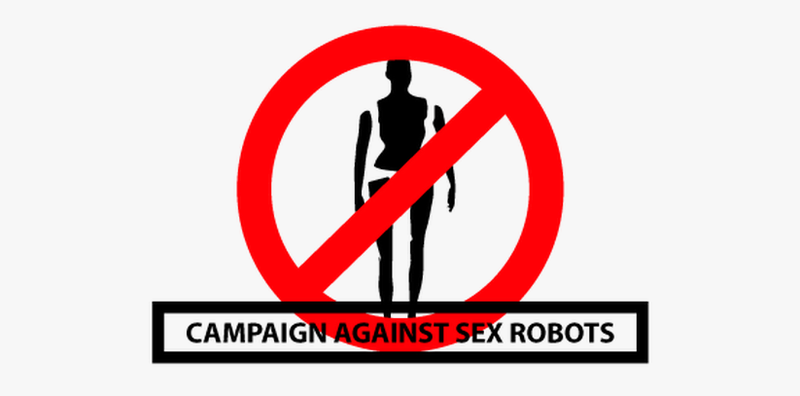Image may be NSFW.
Clik here to view.
Robot ethicists have launched the Campaign Against Sex Robots, seeking a ban on the development of robotic sexytimes.
The reality of pleasure bots is fast approaching. Mechanical toys for sexual pleasure already exist, of course, and hardware developers are working to incorporate A.I. into their designs. A company called True Companion claims to be producing “the world’s first sex robot,” Roxxxy, this year. Despite questions of technical readiness and ethics, Roxxxy, priced at $7000, has thousands of pre-orders.
Robot ethicists Kathleen Richardson of De Montfort University and Erik Billing from University of Skövde are the co-creators of the Campaign Against Sex Robots, which seeks to bring awareness to the issue and proposes a robot sex ban. They compare it to similar campaigns that seek to limit development of “killer” robots. Richardson and Billing believe that sex robots will degrade human relationships and reinforce a view of women as sexual objects.
“We think that the creation of such robots will contribute to detrimental relationships between men and women, adults and children, men and men and women and women,” Richardson told the BBC. On the Campaign’s website, these ideas are unpacked further, including:
- We believe the development of sex robots further objectifies women and children.
- The development of sex robots and the ideas to support their production show the immense horrors still present in the world of prostitution which is built on the “perceived” inferiority of women and children and therefore justifies their uses as sex objects.
- We propose that the development of sex robots will further reduce human empathy that can only be developed by an experience of mutual relationship.
The Campaign rejects the argument that the development of sex robots could actually improve the plight of sex workers around the globe, or that there are plenty of lonely people—of any gender—interested in a robot companion for a variety of reasons. Richardson is also against Amnesty International’s call to decriminalize human sex work.
While I do not want to dismiss the ethicists’ concerns or claims entirely—sex bots should be a topic for spirited debate—it seems to me that the Campaign should be focusing more on helping to establish reasonable guidelines moving forward, rather than an outright ban. That ban isn’t going to happen, nor should it. Prohibition is seldom a fix.
We’re moving towards a future of sex with robots whether we like it or not. An outright ban would simply empower a new kind of robot pimp and create an unregulated robot sex black market where anything goes. Why not push for reasonable regulations instead, like ensuring the robots are secure against malware, must look/act of legal age, and establishing legal minimum ages (18+) to use their services?
There’s a puritanical element to the Campaign’s written goals, and despite their stated primary concern for women and children, a sort of sexist edge that assumes few women would be interested in sexual relations with bots. Richardson and Billings spoke to The Washington Post:
Asked whether “male” sex robots might also appeal to consumers, Richardson and Billing said that the majority of sex workers are women — though, for the record, there is a male Real Doll.
“Well, it will probably happen to minor degree,” Billing said of the rise of male sex robots. “There are certainly male prostitutes but not at all to same degree that there are female prostitutes.”
This is, however, brave new uncharted robot sex-land, and these two have clearly never seen Jude Law as a dashing sex mecha in the movie A.I. Nor do they venture into the realms of alternative sexualities or consideration of bodies or relationships that might benefit from a helping robot hand. Despite their focus on a highly advanced future, these ethicists are heavily weighted by the traditions of the past.
It’s impossible to extrapolate exactly what our lives with potential robot sex parters will mean. In the book Love and Sex with Robots, author David Levy suggests the time when human-bot relations are commonplace is fast approaching, and that they will be normalized by 2050.
We need to talk about what robot companions mean and how they will fit into humanity, not condemn them. The Campaign Against Robot Sex feels too much like an anti-porn brigade, blaming the product instead of the culture for wrongs committed. Instead of demonizing what we don’t know, we should be working on proposals to make the forthcoming industry safe—for humans and robots both.